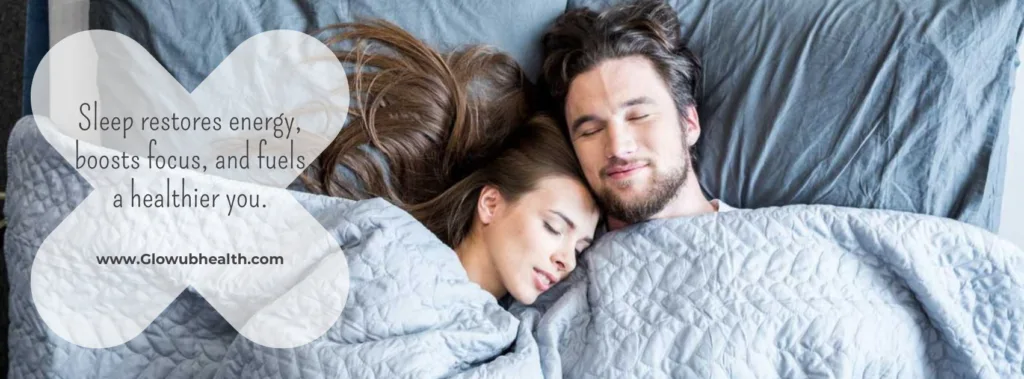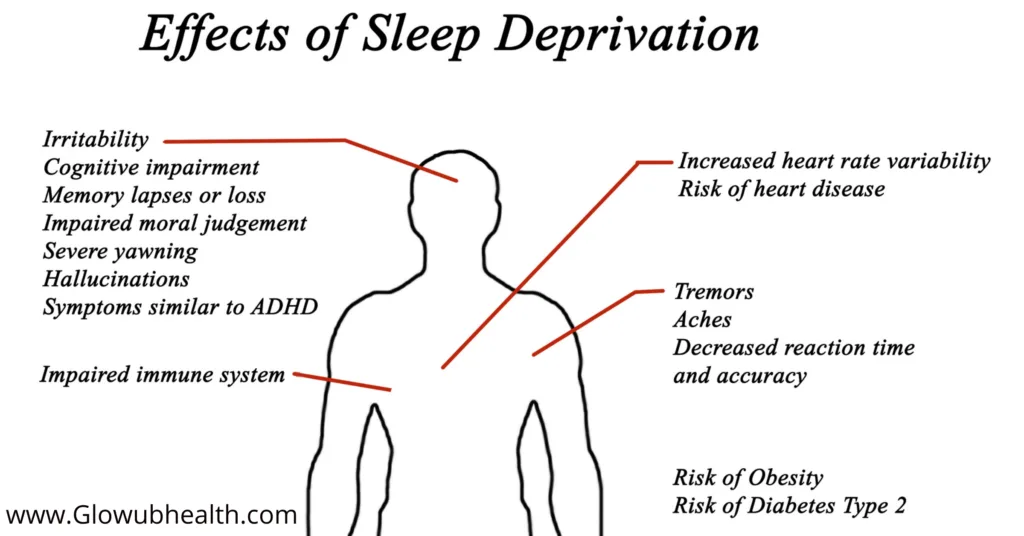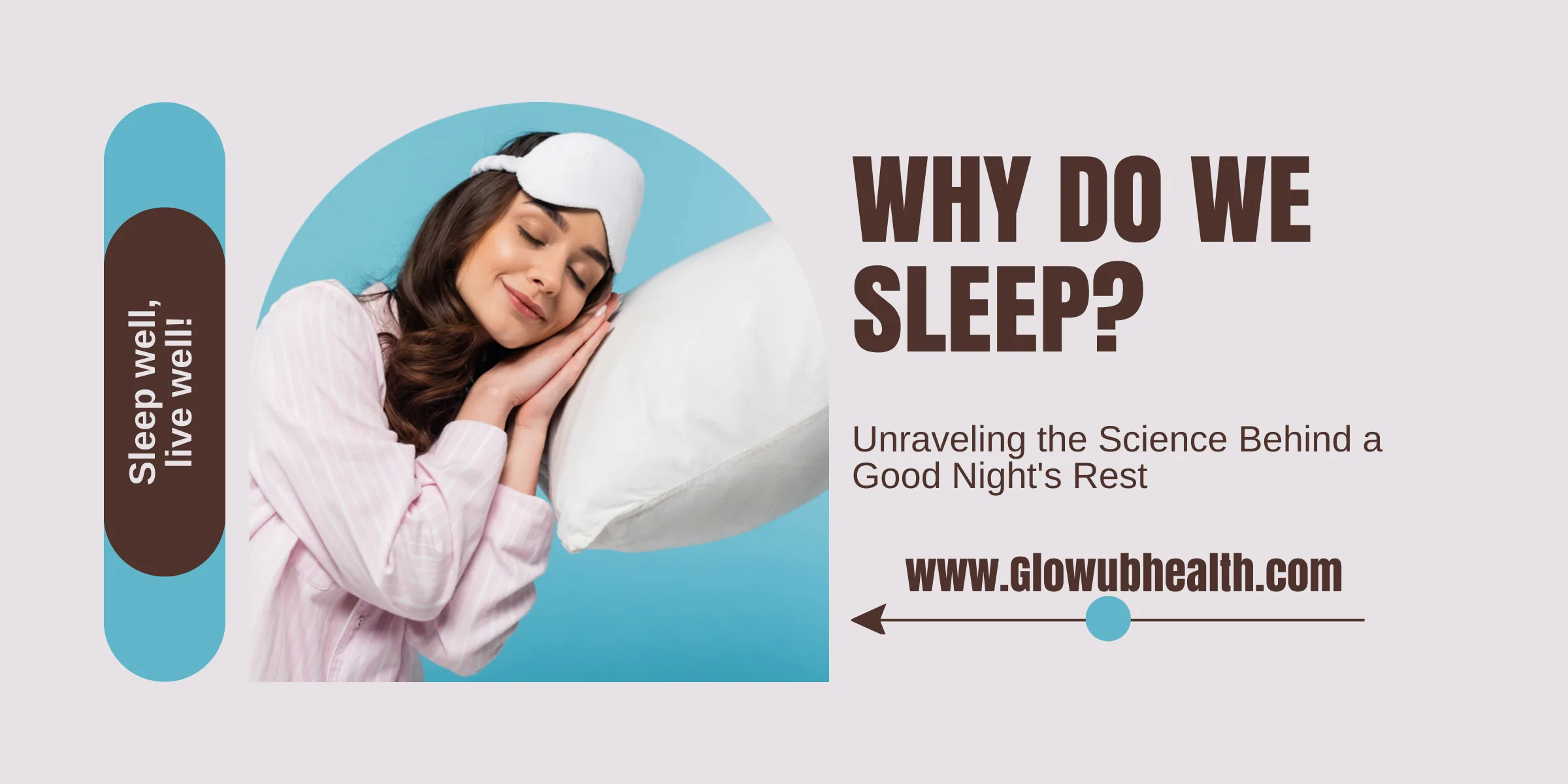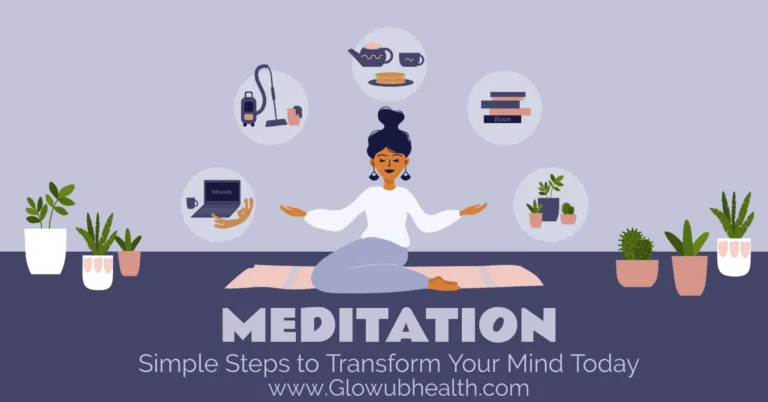Why Do We Sleep? Unraveling the Science Behind a Good Night’s Rest
Why do we sleep? This question has intrigued scientists, health professionals, and curious minds for centuries. Sleep is a mysterious and essential part of our lives, providing the body with much-needed rest and renewal, yet its purpose extends far beyond simple rejuvenation.
Understanding why we sleep involves exploring a mix of physiological, neurological, and psychological factors, each playing a critical role in maintaining our overall well-being.
In this article, we’ll dive deep into the science behind sleep, why it’s vital for health, and actionable ways to improve your sleep quality.
This article is for informational purposes only and is not intended to replace professional medical advice, diagnosis, or treatment. If you are experiencing sleep problems or disorders, please consult with a healthcare provider for personalized advice.
What is Sleep?

Sleep is a naturally recurring state of mind and body characterized by altered consciousness, relatively inhibited sensory activity, and reduced interactions with surroundings.
Why do we sleep? One theory suggests that sleep evolved as a protective mechanism, keeping humans and animals safe during periods when being active is more dangerous. Modern science, however, reveals that sleep is much more than just “shutting down” for the night.
Sleep is a complex biological function driven by the brain’s circadian rhythm, which is heavily influenced by external factors like light, temperature, and social interactions.
As we’ll explore in the next sections, the purpose of sleep includes cellular repair, mental clarity, memory consolidation, and emotional stability.
The Importance of Sleep
Understanding the importance of sleep goes beyond just feeling refreshed each morning; sleep is foundational to our physical, mental, and emotional health. Without sufficient sleep, both mental and physical health decline over time, affecting nearly every tissue and system in the body, from the brain and heart to metabolism and immune function.
Chronic lack of sleep is even associated with an increased risk of serious diseases, including heart disease, diabetes, and stroke. Here’s an in-depth look at some core benefits of sleep:
Physical Restoration and Recovery
Sleep is essential for bodily repair and growth. During deep, non-REM (NREM) sleep, the body goes into a high-output repair mode, releasing growth hormones that are essential for tissue repair and muscle growth.
Here’s a breakdown of the specific ways sleep aids in physical recovery:
- Cellular Repair: When we sleep, cells throughout the body undergo essential repairs. Protein synthesis ramps up, allowing cells to mend and rebuild tissues that have been damaged by daily wear and tear.
- Muscle Recovery: For those who engage in physical activity, sleep is crucial. During sleep, blood flow to the muscles increases, delivering oxygen and nutrients that facilitate muscle recovery. Athletes often prioritize sleep as part of their training routine for this reason.
- Energy Restoration: Adequate sleep helps replenish the body’s energy stores, preparing it for the demands of the following day. The body conserves energy during sleep, which can help improve stamina and performance for both physical and mental activities.
- Support for Immune Function: Sleep is essential for maintaining a strong immune system. During sleep, the body produces cytokines, proteins that help fight infections, inflammation, and stress. Research has shown that people who don’t get enough sleep are more susceptible to infections, and even vaccinations may be less effective for sleep-deprived individuals.
Mental Health and Emotional Stability

A good night’s sleep is one of the most powerful tools for stabilizing mood, reducing stress, and improving emotional regulation. Insufficient or poor-quality sleep affects the brain’s ability to process emotions, often resulting in increased irritability, reduced patience, and heightened stress responses.
Chronic sleep deprivation has been closely linked to a range of mental health issues, including:
- Stress Management: Sleep acts as a buffer against daily stressors, allowing the brain to process and recover from the mental strains of the day. When well-rested, we are better equipped to handle challenges, manage relationships, and make sound decisions.
Read More: Manage Stress: 7 Effective Techniques to Reduce Daily Tension
- Mood Regulation: During sleep, particularly in REM stages, the brain processes emotional experiences from the day, enabling us to better manage difficult emotions. This process can make us less reactive and more stable, which is essential for maintaining positive relationships and mental health.
- Reduced Anxiety and Depression Risks: Sleep and mental health are intertwined. Disrupted sleep patterns are often a precursor to anxiety and depression, and those with mental health conditions frequently experience disrupted sleep. Addressing sleep issues can help mitigate symptoms of anxiety and depression, and in some cases, improve the overall efficacy of treatments.
Learning, Memory, and Cognitive Function
One of sleep’s most fascinating benefits is its role in memory consolidation and cognitive function. During sleep, the brain is actively engaged in processing the information we’ve encountered throughout the day, transferring it from short-term to long-term memory storage. This process is essential for:
- Learning and Retention: Sleep aids in absorbing and retaining new information, making it easier to recall details later. Studies show that a full night of sleep after learning a new task can significantly improve performance, suggesting that sleep enhances our ability to absorb knowledge and acquire new skills.
- Memory Consolidation: Memory consolidation occurs primarily during REM sleep when the brain sorts through and organizes information from the day. This process strengthens neural connections, helping us retain important information while discarding less relevant data.
- Problem-Solving and Creativity: The brain is highly active during REM sleep, especially in areas associated with creativity and problem-solving. During this stage, the mind integrates information in novel ways, often resulting in creative insights or innovative solutions. It’s not uncommon to wake up with new perspectives on problems that seemed insurmountable the day before.
Sleep is Not Passive: An Active Process Vital for Growth and Health
Contrary to what many believe, sleep is not a passive state where the body simply “shuts down.” Instead, sleep is an active, dynamic process essential to physical and mental rejuvenation.
Each sleep stage, from light to deep to REM, plays a unique and vital role in maintaining our health. It’s a time of profound transformation, where our bodies and minds are replenished, preparing us to meet the demands of a new day.
Sleep, therefore, is a complex but essential process that shapes how we feel, think, learn, and grow. Prioritizing good sleep is one of the most impactful steps toward achieving a healthier, happier, and more resilient life.
Whether you’re seeking improved health, better memory, enhanced learning capabilities, or emotional stability, good sleep should be a cornerstone of your daily routine.
The Science of Sleep Stages
Why do we sleep? To understand this, we must examine the stages of sleep. Each sleep stage has specific functions and is crucial for restorative processes.
- Non-REM (Rapid Eye Movement) Sleep
- Stage 1: This is the transition from wakefulness to sleep, lasting only a few minutes. Breathing slows, muscles relax, and brain activity starts to decrease.
- Stage 2: A deeper stage where body temperature drops, heart rate slows, and sleep spindles (brief bursts of brain activity) occur, helping to protect sleep by blocking external noise.
- Stage 3: Known as deep sleep, this stage is vital for physical recovery, tissue growth, and immune function.
- REM Sleep
- REM sleep is the stage where most dreaming occurs. Brain activity ramps up, almost mimicking wakefulness, while the body remains paralyzed to prevent acting out dreams. REM sleep is crucial for cognitive functions, including memory retention and emotional processing.
Each night, our bodies cycle through these stages multiple times. The balance of these stages is vital; interruptions can result in poor sleep quality, negatively affecting overall health.
Why Do We Sleep? Biological and Evolutionary Perspectives

While we don’t have a singular, all-encompassing answer to “why do we sleep,” there are several theories:
Brain Plasticity: Sleep helps the brain to adapt, strengthening and pruning connections, which is essential for learning and memory.
Energy Conservation: Sleep lowers our energy demand at night when it’s more challenging to acquire food.
Body Restoration: Many of the body’s restorative functions, including muscle growth, tissue repair, and protein synthesis, occur predominantly during sleep.
Sleep’s Impact on the Brain and Memory
Why do we sleep, and what does it mean for our brain? Research shows that sleep plays a crucial role in cognitive function. During sleep, the brain organizes and consolidates information from the day, transferring memories from short-term to long-term storage.
Studies have shown that sleep also clears waste products that accumulate in the brain. This clearing process is essential for preventing neurological diseases, including Alzheimer’s, as toxic proteins are flushed from the brain during sleep.
Why Do We Sleep? Unraveling the Science Behind a Good Night’s Rest

Why do we sleep? This question has intrigued scientists, health professionals, and curious minds for centuries. Sleep is a mysterious and essential part of our lives, providing the body with much-needed rest and renewal, yet its purpose extends far beyond simple rejuvenation.
Understanding why we sleep involves exploring a mix of physiological, neurological, and psychological factors, each playing a critical role in maintaining our overall well-being. In this article, we’ll dive deep into the science behind sleep, why it’s vital for health, and actionable ways to improve your sleep quality.
Sleep’s Impact on the Brain and Memory
Why do we sleep, and what does it mean for our brain? Research shows that sleep plays a crucial role in cognitive function. During sleep, the brain organizes and consolidates information from the day, transferring memories from short-term to long-term storage.
Studies have shown that sleep also clears waste products that accumulate in the brain. This clearing process is essential for preventing neurological diseases, including Alzheimer’s, as toxic proteins are flushed from the brain during sleep.
How Sleep Affects Physical Health
Sleep has a significant impact on various aspects of physical health:
- Immune Function: Sleep improves immune system performance, preparing it to fend off infections.
- Metabolism and Weight: Lack of sleep can disrupt hormones that regulate hunger, leading to increased appetite and potentially weight gain.
Read More: Green Tea That Helps You Lose Weight: 10 Incredible Benefits You Need to Know!
- Cardiovascular Health: Quality sleep supports heart health, reducing the risk of high blood pressure, heart disease, and stroke.
Personal Story: Sarah, a marathon runner, noticed her performance plummet after several weeks of sleep deprivation. Upon prioritizing her sleep, she regained her energy, enhanced her endurance, and even improved her time.

The Connection Between Sleep and Mental Health
Sleep and mental health are closely intertwined. Sleep disruptions can trigger psychological symptoms, while existing mental health issues can impair sleep.
- Mood and Emotion Regulation: REM sleep helps process emotions, giving perspective on challenges and reducing emotional reactivity.
- Depression and Anxiety: Poor sleep can exacerbate symptoms of depression and anxiety, making it essential for anyone managing mental health conditions to maintain healthy sleep routines.
Case Study: John, who struggled with anxiety, reported improved mood and reduced anxiety symptoms after adopting a consistent sleep schedule, highlighting the therapeutic effects of good sleep.
How Much Sleep Do We Need? A Look at Age-Based Recommendations
While sleep needs vary, here’s a general guideline:
- Newborns: 14-17 hours
- Children: 9-13 hours
- Teenagers: 8-10 hours
- Adults: 7-9 hours
- Older Adults: 7-8 hours
Finding the right amount of sleep for yourself can make all the difference in your daily life and overall health.
Natural Ways to Improve Sleep Quality
- Maintain a Consistent Sleep Schedule: Going to bed and waking up at the same time every day helps regulate your circadian rhythm.
- Optimize Your Sleep Environment: A cool, dark, and quiet room enhances sleep quality.
- Limit Stimulants: Caffeine and nicotine interfere with sleep, so limit their intake before bed.
- Incorporate Relaxation Techniques: Meditation, deep breathing exercises, and stretching can prepare your mind and body for sleep.
Exercise Routine: Engaging in moderate exercise several times a week has been shown to improve sleep quality by increasing the time spent in deep sleep stages.
The Consequences of Sleep Deprivation

The downsides of sleep deprivation are severe, impacting nearly every bodily function:
Mental Health Struggles: Sleep-deprived individuals are more likely to experience mental health conditions, including anxiety and depression.
Cognitive Decline: A lack of sleep results in impaired judgment, reduced creativity, and a slower reaction time.
Increased Disease Risk: Chronic sleep deprivation has been linked to conditions such as diabetes, obesity, and cardiovascular disease.
Conclusion: Embrace the Essential Power of Sleep
The question, “Why do we sleep?” is answered through a deeper understanding of sleep’s vast influence on both our physical and mental health.
Sleep is much more than mere rest; it is an active, transformative process that allows our bodies to repair, our minds to consolidate memories, and our emotions to stabilize. As an essential component of health, sleep supports our immune system, enhances cognitive function, regulates mood, and even aids in creative problem-solving.
A consistent, restful night’s sleep is a cornerstone of well-being. By recognizing the importance of sleep and prioritizing good sleep habits, you’re setting yourself up for improved health, sharper focus, and greater resilience to face life’s challenges.
So, embrace the power of sleep not just as a daily ritual, but as an investment in a healthier, more fulfilling life. After all, a good night’s rest is one of the most valuable tools for living well.
FAQ
1. Why is sleep so important for our health?
Sleep is crucial because it helps the body repair tissues, supports the immune system, stabilizes mood, enhances cognitive functions, and consolidates memories. Without sufficient sleep, nearly every system in the body, from the brain to the heart, can be affected, leading to various health issues.
2. What happens if I don’t get enough sleep?
Chronic sleep deprivation can lead to serious consequences, including increased risk of heart disease, diabetes, obesity, weakened immunity, memory issues, mood disorders, and impaired judgment. Lack of sleep also makes it harder to cope with stress and may exacerbate mental health conditions.
3. How many hours of sleep do I really need?
Most adults need between 7-9 hours of sleep per night. However, individual needs can vary depending on age, lifestyle, and overall health. Children and teenagers generally need more sleep, while some older adults may feel refreshed with slightly less.
4. Can I make up for lost sleep on weekends?
While catching up on sleep during weekends can help reduce sleep debt, it’s not a long-term solution. Consistent sleep patterns are essential for optimal health. Trying to “catch up” on weekends can disrupt your body’s internal clock, making it harder to fall asleep on time during the week.
5. What are the best practices for improving sleep quality?
To improve sleep quality:
-Maintain a consistent sleep schedule, even on weekends.
-Create a calming bedtime routine.
-Limit caffeine and heavy meals in the evening.
-Ensure a comfortable sleep environment by adjusting temperature, lighting, and noise.
-Reduce screen time at least an hour before bed to minimize blue light exposure.
6. What role does REM sleep play in mental health?
REM sleep, which involves intense brain activity, is essential for processing emotions and consolidating memories. This stage of sleep allows the brain to “file” emotional experiences, helping regulate mood and manage stress. Poor REM sleep has been linked to increased risk of depression and anxiety.
7. How does sleep affect athletic performance?
Quality sleep is essential for athletic performance, as it promotes muscle recovery, improves reaction time, and enhances endurance. Athletes who prioritize sleep often report faster recovery, better focus, and overall improved performance compared to those who are sleep-deprived.
8. Can certain foods help improve sleep?
Yes, certain foods may promote better sleep. For example:
Foods rich in magnesium (like nuts and leafy greens) help relax muscles.
Foods high in tryptophan (like turkey, milk, and bananas) aid in serotonin production, which helps regulate sleep.
Chamomile tea and other herbal teas are known to promote relaxation and may improve sleep quality.
9. How does sleep support the immune system?
During sleep, the body produces cytokines, proteins that combat infections and inflammation. Adequate sleep strengthens immune defenses, helping the body fight off illness. Sleep-deprived individuals are often more susceptible to infections, and vaccines may even be less effective for them.
10. Is napping good or bad for sleep health?
Napping can be beneficial, especially if you’re sleep-deprived, but it’s best to keep naps short (20-30 minutes) and take them earlier in the day. Long or late naps can interfere with nighttime sleep by disrupting your circadian rhythm, making it harder to fall asleep at night.






